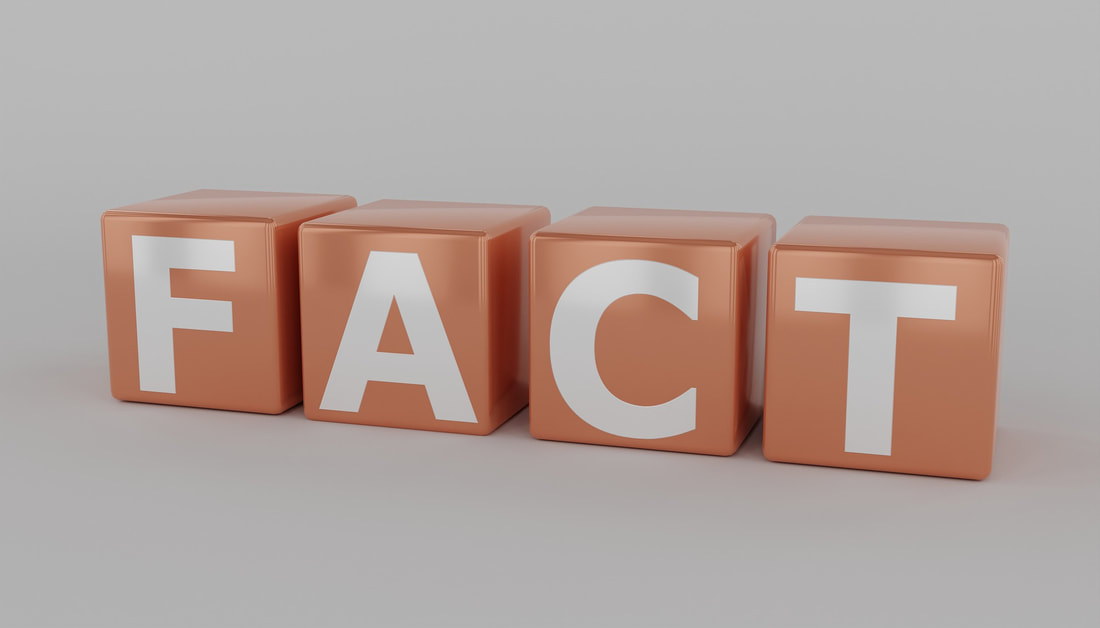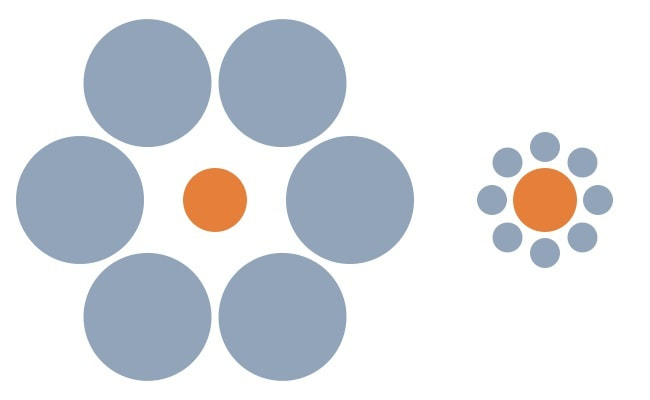|
Image by FelixMittermeier from Pixabay Quora Question: Is modern society structured so that people don't have time to think critically of their life? I’d like to take a contrarian position on this question and hopefully offer some useful insights.
I don’t think society is structured to work against people thinking critically. However, there are impediments to people engaging in more critical thinking. I think the main impediments are several cognitive biases that prevent people from taking a critical look at their ideas and beliefs. Let me mention a few of these. The knowledge illusion. The world around us is very complicated. But, while we tend to recognize this fact when prompted we routinely ignore it when it comes to expressing or examining our own opinions on the world. We tend to recognize the limits of other people’s knowledge while failing to recognize our limits. We all suffer from what Steven Sloman and Philip Fernbach refer to in their book The Knowledge Illusion as the illusion of explanatory depth. Consider the following example from their book:
This is the knowledge illusion. As they point out in the book, “Our point is not that people are ignorant. It’s that people are more ignorant than they think they are. We all suffer, to a greater or lesser extent, from an illusion of understanding, an illusion that we understand how things work when in fact our understanding is meager.” Related to this is the bias we all tend to have of thinking that our beliefs are correct. This is well illustrated in Kathryn Schulz’s book Being Wrong. In her excellent TED talk on the book, she asks some people a seemingly easy question: What does it feel like to be wrong? Their answers: “It feels bad.” “Embarrassing.” “Humiliating.” You’d probably agree. But, there’s a problem. This is not what it feels like to be wrong. This is what it feels like to find out you’re wrong. What does it feel like to be wrong? Nothing. It feels just like being right. So, we tend to think we know more about things than we do and we tend to believe that our beliefs are right. After all, they feel right. With those two things working against us, you can see why it might be difficult for people to engage in more critical thinking. What would be the point? Their knowledge and belief are already well justified and accurate. Having said this, I will point out that several factors don’t help individuals to break out of this trap. We are constantly bombarded with news stories that are, in part, designed to polarize us and not require in-depth analysis on our part. We are also inundated with several other life factors some of which are external and some of which are internal. These factors, such as the pressures of finding and keeping a job, raising children, etc., don’t always encourage critical thinking either. The irony of this is that all of these other factors, which together you might interpret as society being structured to hinder critical thinking, would all greatly benefit from more critical thinking not less. But, it will be difficult to see that because of the powerful effects of the biases I mentioned earlier. Overcoming those is the key to improving critical thinking. Like most other things, people will make time for something if it is an important priority. The popularity of sports is a good example. No amount of societal influence will do much to diminish the drive to watch and participate in sports. Until the motivation to examine your own beliefs and knowledge is as powerful as the motivation to watch your favorite sports team, critical thinking won’t improve much. A good first step would be to read these books: Steven Sloman The Knowledge Illusion Michael Syed Black Box Thinking Adam Grant Think Again Julia Galef The Scout Mindset  Quora Question: If facts are offensive to me, are they invalid? Unfortunately, it’s a common sentiment that facts that offend can’t be true. But, facts are facts whether they offend you or not.
Of course, it often takes some work to determine exactly what the facts are for any given situation, issue, or topic. But, ultimately we should all be concerned about getting at the facts regardless of whether they offend or not. Offense simply cannot be the standard by which we determine what is true. If it were, that would render facts completely subjective since there will always be people who find offense at one fact or another. Instead of reacting with offense at a fact why not react with curiosity? Why not recognize that in this area there is much you need to learn. And, yes why not admit that your opinion may be wrong. This is most difficult for most people. People tend to be very impressed with having opinions and they regard their own opinions as special and true. But, since we all have many opinions about many subjects and no one is infallible it follows that at this very moment you, me, and everyone must be holding some false opinions. The question is what should you do about that? Do you simply deny it? Do you become offended? Or, do you have the courage to become curious and seek to find out which of your opinions are false and work to change those? After all, if we are going to make progress on any number of problems that need work we first need to find out what is really going on. Would you rather be content in your own world of opinion and no offense or would you rather become curious and learn what is really going on in an effort to improve the world around you? I hope more people choose curiosity and drop the offense. Image by Jerzy Górecki from Pixabay  A2A on Quora: There could be several reasons. As someone already pointed out, some people don’t have these things, it could be that people just don’t know how to think critically. But, for some, the are other factors that are involved. Critical thinking can expose weaknesses in your own thinking. It can clearly show where your thinking is flawed and for many people, this is a dreadful prospect to face. The same goes for freethought. Often, people implicitly recognize that this practice will call into question deeply held beliefs that they have. This creates what psychologists call cognitive dissonance. There is a conflict between what you believe and what is accurate. To resolve this conflict you have to give up something. Usually, people give up accuracy. This article illustrates this very well. Facts? We Don't Need No Stinking Facts! But, there are things you can do to bring more critical thinking and freethought into your world. First, recognize that your beliefs are not part of your self-identity. Most people define themselves in part by their beliefs. But, instead, think of beliefs as tools, like eyeglasses. Eyeglasses are designed to help you see clearly. But, what do you do when the glasses you’re wearing no longer help you see clearly? Do you hang on to them and refuse to change them? Or, do you discard them in favor of better glasses that will help you see clearly again? Do the same with your beliefs. Regard them as tools. When they no longer help you understand the world around you accurately, don’t hang on to them. Discard them. Update them. The concept of “updating” might also help. Periodically you have to update your computer or smartphone with a new operating system. As you gain more knowledge and more life experience you will find that you need to periodically update your “belief operating system.” If you don’t have to update your belief operating system that doesn’t mean you have the most accurate set of beliefs ever. It means you aren’t learning anything and growing as a person. Image by Gerd Altmann from Pixabay  There are some hidden assumptions to this question that need to be addressed as a means of giving an adequate answer.
First, is the assumption that having an opinion is something one has a right to. Second, is the assumption that judging one’s opinion is the same as judging the person themselves. In both cases, the assumptions are faulty which gives rise to the sentiment and the question. Let’s examine it. What could it mean to have a “right to an opinion?” Does this mean that one has the liberty to have a point of view? Perhaps, but if so this is not in dispute among most people. Of course, you have your point of view and opinion. Everyone has opinions. As such there is nothing particularly special about opinions. But, when this question is asked about the right to an opinion usually there is another sense in mind; something like the right to be taken seriously or heard or to be correct, or worse to be immune to criticism. None of these can be what it means to have a right to your opinion. Merely having an opinion does not mean that others are required to listen to or entertain your opinion. Nor does it mean that others need to take your opinion seriously. Most of all, merely having an opinion does not mean it is correct or that it should be immune to criticism. We all have opinions. No one can take those away. But, merely having an opinion is not anything special. What is special is having the intellectual courage to examine one’s opinions in light of reason and evidence and work to make those opinions reflect reality as well as possible. About the question about judging it is important to understand that criticizing an idea or opinion is different than criticizing the person who holds that idea or opinion. It has to be possible to challenge ideas and opinions without offending people otherwise rational discourse is impossible. Too many people are too impressed with the fact that they have opinions. But, having an opinion is not unique. Everyone has them. Some of them agree with yours and others don’t. But, what matters is the effort to understand how the world works and what the best reason and evidence tells us about how the world works. Instead of focusing on our opinions, we should focus on understanding the world and working together to arrive at the most accurate understanding possible whether or not that agrees without opinions. If it doesn’t then it is our opinions that need to change. Take a look at this picture: Which orange circle is bigger? The one of the right?
Now, look at this next picture:
Image by Arek Socha from Pixabay
Logic teaches a number of useful lessons such as how to identify fallacies, how to avoid cognitive biases, and how to construct good arguments. But, some of the lessons of logic are counter=intuitive. Let's look at a few of these. |
KEVIN J. BROWNEPhilosopher / Educator These blog posts contain links to products on Amazon.com. As an Amazon Associate I earn from qualifying purchases.
Categories
All
Archives
April 2023
|









 RSS Feed
RSS Feed
















